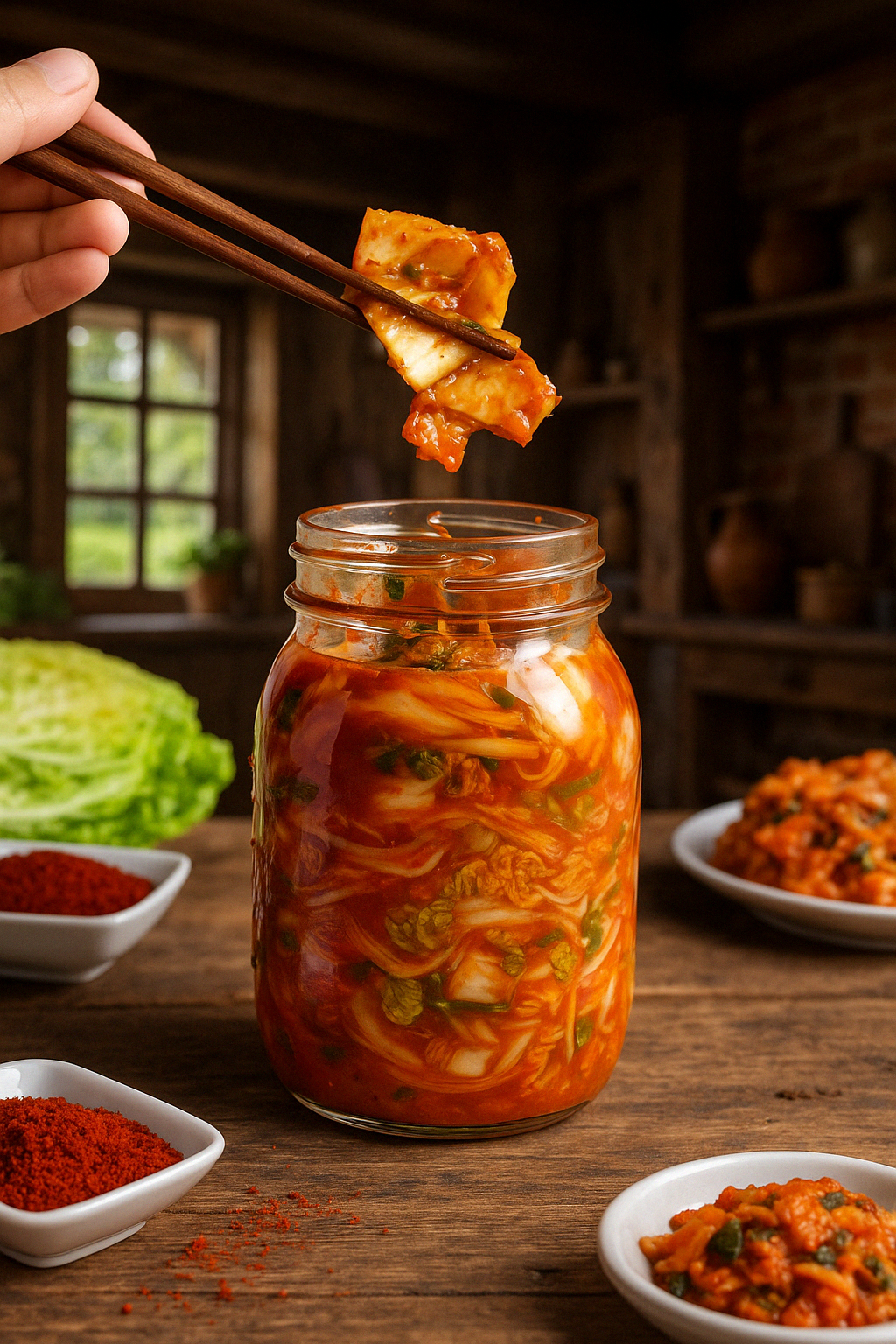Classic Napa Cabbage Kimchi Recipe

Ingredients:
For Salting the Cabbage:
- 1 large Napa cabbage (about 1.5–2kg)
- 1/4 cup sea salt (non-iodized)
- Water (enough to cover the cabbage)
Kimchi Paste:
- 1 tablespoon grated ginger
- 4–6 garlic cloves, minced
- 1 small onion, grated or finely chopped
- 2 tablespoons fish sauce (or soy sauce for vegetarian version)
- 1 tablespoon sugar (or apple/pear purée for traditional sweetness)
- 2–4 tablespoons Korean red pepper flakes (gochugaru) — adjust to heat preference
- 2–3 green onions, chopped
- 1 medium carrot, julienned
- 1/2 daikon radish, julienned (optional but traditional)
Method:
- Prep the Cabbage
- Slice cabbage lengthwise into quarters, then chop into bite-sized pieces.
- Place in a large bowl. Sprinkle with salt and toss to coat.
- Add water to cover and place a plate or weight on top to submerge. Let sit for 1.5 to 2 hours, tossing every 30 minutes.
- Rinse cabbage thoroughly 2–3 times with cold water to remove excess salt. Drain well.
- Make the Kimchi Paste
- In a bowl, mix garlic, ginger, onion, sugar, fish sauce (or soy), and gochugaru into a thick paste.
- Stir in the chopped green onion, carrot, and daikon.
- Combine
- Using gloves (especially with the chili!), massage the paste into the drained cabbage, coating each piece well.
- Pack the mixture tightly into a clean glass jar or fermenting container, pressing it down to eliminate air pockets. Leave at least 2.5–5cm (1–2 inches) of headspace.
- Ferment
- Cover loosely with a lid or cloth. Let sit at room temperature (ideally 18–22°C / 64–72°F) for 1–3 days to ferment.
- Check daily. You may see bubbles and smell that distinctive kimchi funk—that’s fermentation magic.
- Once it’s tangy to your liking, seal the jar and move it to the fridge. It will continue to develop flavor slowly over time.
How to Eat It:
- Serve as a side dish with rice or noodles
- Stir into fried rice, stews (like kimchi jjigae), or grain bowls
- Use in tacos, grilled cheese, or wraps for a spicy probiotic kick
Tips for Success:
- Taste daily during fermentation to find your perfect tanginess.
- Kimchi lasts months in the fridge, and the flavor deepens as it ages.
- Want a milder version? Use less gochugaru or blend in apple/pear to sweeten.